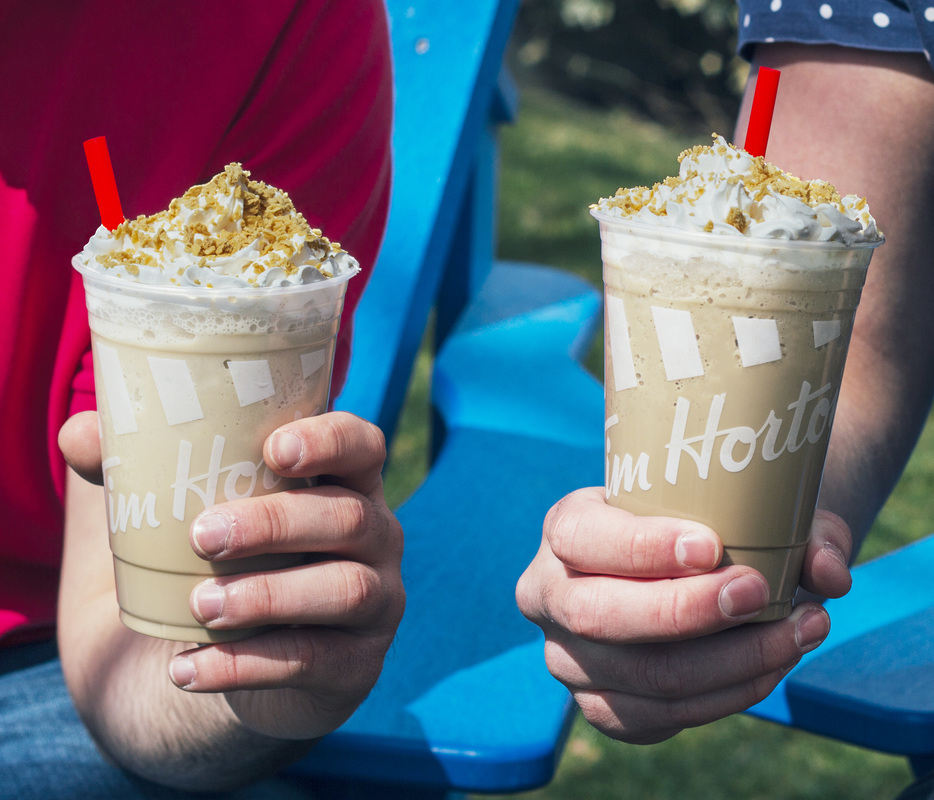|
OAKVILLE, ON - Strong sales of grilled wraps and potato wedges at Tim Hortons helped boost third-quarter profit at parent company Restaurant Brands International Inc., the company said Monday.
Also read, Consumers Shifting Away from Fast-Food Breakfast. In fact chief executive officer Daniel Schwartz says the company has “targeted expansion” of the lunch menu at Canada’s beloved coffee and doughnut chain, which has introduced everything from pulled pork to Greek salad wraps and kettle chips since Miami-based Burger King took over in 2014. “We see lunch as a huge opportunity for us for many, many years,” he told analysts on the RBI quarterly earnings conference call. Though both Tims and McDonald’s continue to see solid growth in their ubiquitous breakfast sandwiches, “lunch is the battlefield” in fast food now, said industry expert Robert Carter, executive director of food service at market research firm NPD Group. That’s because customers – particularly millennials – are seeking speed and convenience at mid-day rather than a full sit-down lunch at a casual dining restaurant, “so it’s creating an opportunity in the marketplace,” explained Carter. Younger customers are also fuelling rapid growth in iced and sweet coffee beverages, which they tend to prefer over the traditional hot brewed java favoured by boomers, he added. Schwartz also said he plans to keep pushing with an international expansion of Tims despite softness in the quick-service restaurant industry as well as political unrest and economic uncertainty abroad. He told The Canadian Press that he is unfazed by geopolitical storms such as Britain’s vote to leave the European Union or the recent election of Philippines’ President Rodrigo Duterte, who has come under criticism for his approach to human rights. “We would expect to start seeing restaurants from (Tim Hortons) in those markets next year,” said Schwartz, adding that it takes time to establish the brand’s supply chain and infrastructure in new markets. Earlier this year, RBI announced plans to push into the British and Filipino markets but had not announced any timelines. Chief financial officer Josh Kobza noted the company also remains committed to its original goal to expand Tims further into the U.S., the world’s largest fast food market which the chain has had difficulty penetrating in years past. Kobza said they are targeting “many more” regions south of the border to open stores (known as Tim Hortons Café and Bake Shop in the U.S.) beyond the recent franchise deals struck in the Cincinnati, Indianapolis and Minneapolis markets. Meanwhile RBI, which also owns Burger King, reported a nice bump in profits for the third quarter ended Sept. 30. The company earned $86.3 million (U.S.), up from $49.6 million in the same quarter last year. The company said the profit amounted to 36 cents per diluted share compared with 24 cents per diluted share a year ago. On an adjusted basis, RBI said it earned $201.4 million or 43 cents per diluted share. That was up from an adjusted profit of $151.6 million or 32 cents per diluted share a year ago. Revenue grew to nearly $1.08 billion, up from nearly $1.02 billion in the same period last year. Sales at Tim Hortons stores that have been open for 13 months or longer grew 2 per cent — not accounting for the effect of foreign currency translation — while Burger King’s comparable sales increased 1.7 per cent. In North America, particularly the U.S., industry observers have pointed to lower grocery costs and higher restaurant prices as a reason why people may be dining at home more frequently, Kobza said. Tim Hortons added 28 new restaurants in the quarter to end the period with 4,492 locations. Burger King added 143 new restaurants to finish with 15,243. Source Lisa Wright, The Star & The Canadian Press
0 Comments
Leave a Reply. |
Advertisement
News & Updates
Stay informed with the latest news around foodservice, agriculture and other related food news. Advertisement Opportunities
|


 RSS Feed
RSS Feed


